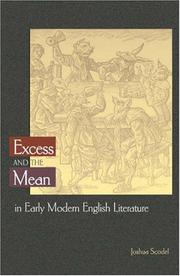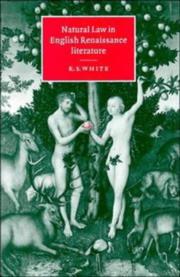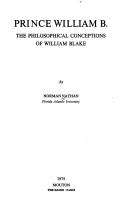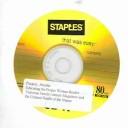| Listing 1 - 10 of 24 | << page >> |
Sort by
|
Book
ISBN: 9781802074635 1802074635 Year: 2024 Publisher: Liverpool Liverpool University Press
Abstract | Keywords | Export | Availability | Bookmark
 Loading...
Loading...Choose an application
- Reference Manager
- EndNote
- RefWorks (Direct export to RefWorks)
"Recipes are not just instructions. They also embody culture, class, belief, linguistic and literary form, and even include celebrity endorsement. Medieval and early modern recipes can be short and simple but sometimes are not – sometimes they work, and sometimes they do not. They can also be remarkably performative, imaginative, and playful. These essays explore recipes 1350-1600 from a range of perspectives and are unified by an interest in the complexity and richness of these texts. This volume is the first of its kind. It presents new critical perspectives on medieval and early modern recipes, moving beyond concerns with utility to reframe recipes as part of a dynamic textual and intellectual culture. Contributors build on the sustained scholarly interest in recipes and bring fresh approaches to them. The thirteen essays explore topics including medical, culinary and domestic recipes and charms, as well as how they relate more generally to, for instance, book history, art, astrology and social practices. Collectively, the essays reveal a distinctive book culture by exploring the material forms, literary and scribal practices of recipe books. This book is a significant contribution to these areas of study, increasingly central to scholarship in recent years"--
Didactic literature, English --- English prose literature --- Formulas, recipes, etc --- Books --- History and criticism --- History
Book
ISBN: 1282245279 9786612245275 9027290482 9789027290489 9789027254245 9027254249 Year: 2009 Publisher: Amsterdam Philadelphia John Benjamins Pub. Co.
Abstract | Keywords | Export | Availability | Bookmark
 Loading...
Loading...Choose an application
- Reference Manager
- EndNote
- RefWorks (Direct export to RefWorks)
The history of English writing is, to a considerable extent, the history of instructional writing in English. This volume is the first collection of papers to focus on instructional writing throughout the history of the language. Spanning a millennium of English texts, the materials studied represent procedural and behavioural discourse in a variety of genres. The primary texts, from Ælfric's homilies to medieval cooking recipes to seventeenth-century American conduct literature to present-day language textbooks, display a variety of linguistic devices typical of instruction. The materials nonetheless differ with respect to the explicitness of their instructive purpose. Bringing together a broad range of instructional writing from the Old, Middle and Modern English periods, this collection celebrates the sixtieth birthday of Risto Hiltunen, who has successfully combined discourse-linguistic approaches with the history of English in his research, and inspired the colleagues and former students contributing to this volume.
Didactic literature, English --- English prose literature --- English language --- History and criticism. --- Rhetoric --- Study and teaching. --- Germanic languages
Book
ISBN: 9789027254245 Year: 2009 Publisher: Amsterdam Benjamins
Abstract | Keywords | Export | Availability | Bookmark
 Loading...
Loading...Choose an application
- Reference Manager
- EndNote
- RefWorks (Direct export to RefWorks)
Historical linguistics --- English language --- Literary rhetorics --- English literature --- Didactic literature, English --- English prose literature --- Germanic languages --- History and criticism --- Rhetoric&delete& --- Study and teaching --- Rhetoric
Book
ISBN: 0859913104 Year: 1990 Publisher: Rochester Boydell & Brewer
Abstract | Keywords | Export | Availability | Bookmark
 Loading...
Loading...Choose an application
- Reference Manager
- EndNote
- RefWorks (Direct export to RefWorks)
091 =20 --- Christian literature, English (Middle) --- -Didactic literature, English (Middle) --- -English literature --- -Manuscripts, English (Middle) --- Manuscripts, Medieval --- -Medieval manuscripts --- Manuscripts --- English manuscripts (Middle) --- Manuscripts, Middle English --- Middle English manuscripts --- British literature --- Inklings (Group of writers) --- Nonsense Club (Group of writers) --- Order of the Fancy (Group of writers) --- Didactic literature, English --- Didactic literature, Middle English --- English didactic literature, Middle --- Middle English didactic literature --- English literature --- Christian literature, English --- Christian literature, Middle English --- English Christian literature, Middle --- Middle English Christian literature --- Handschriftenkunde. Handschriftencatalogi--Engels --- Criticism, Textual --- -Handschriftenkunde. Handschriftencatalogi--Engels --- 091 =20 Handschriftenkunde. Handschriftencatalogi--Engels --- -English manuscripts (Middle) --- Medieval manuscripts --- Didactic literature, English (Middle) --- Manuscripts, English (Middle) --- Vernon manuscript. --- English literature - Middle English, 1100-1500 - Manuscripts. --- English literature - Middle English, 1100-1500 - History and criticism. --- Christian literature, English (Middle) - History and criticism. --- Didactic literature, English (Middle) - History and criticism. --- Christian literature, English (Middle) - Manuscripts. --- Didactic literature, English (Middle) - Manuscripts. --- Manuscripts, English (Middle) - History.

ISBN: 0691090289 9786612158643 1400824931 1282158643 1400814634 9781400814633 9780691090283 9781400824939 1400817994 Year: 2002 Publisher: Princeton, N.J. Princeton University Press
Abstract | Keywords | Export | Availability | Bookmark
 Loading...
Loading...Choose an application
- Reference Manager
- EndNote
- RefWorks (Direct export to RefWorks)
This book examines how English writers from the Elizabethan period to the Restoration transformed and contested the ancient ideal of the virtuous mean. As early modern authors learned at grammar school and university, Aristotle and other classical thinkers praised "golden means" balanced between extremes: courage, for example, as opposed to cowardice or recklessness. By uncovering the enormous variety of English responses to this ethical doctrine, Joshua Scodel revises our understanding of the vital interaction between classical thought and early modern literary culture. Scodel argues that English authors used the ancient schema of means and extremes in innovative and contentious ways hitherto ignored by scholars. Through close readings of diverse writers and genres, he shows that conflicting representations of means and extremes figured prominently in the emergence of a self-consciously modern English culture. Donne, for example, reshaped the classical mean to promote individual freedom, while Bacon held extremism necessary for human empowerment. Imagining a modern rival to ancient Rome, georgics from Spenser to Cowley exhorted England to embody the mean or lauded extreme paths to national greatness. Drinking poetry from Jonson to Rochester expressed opposing visions of convivial moderation and drunken excess, while erotic writing from Sidney to Dryden and Behn pitted extreme passion against the traditional mean of conjugal moderation. Challenging his predecessors in various genres, Milton celebrated golden means of restrained pleasure and self-respect. Throughout this groundbreaking study, Scodel suggests how early modern treatments of means and extremes resonate in present-day cultural debates.
Didactic literature, English --- English literature --- Ethics in literature. --- Literature and society --- Moderation in literature. --- Polarity in literature. --- Temperance in literature. --- History and criticism. --- Classical influences. --- History --- Thematology --- anno 1600-1699 --- anno 1500-1599 --- Civilization, Classical

ISBN: 0511553404 0521481422 052103289X Year: 1996 Publisher: Cambridge : Cambridge University Press,
Abstract | Keywords | Export | Availability | Bookmark
 Loading...
Loading...Choose an application
- Reference Manager
- EndNote
- RefWorks (Direct export to RefWorks)
Natural law, whether grounded in human reason or divine edict, encourages men to follow virtue and shun vice. The concept dominated Renaissance thought, where its literary equivalent, poetic justice, underpinned much of the period's creative writing. R. S. White's study examines a wide range of Renaissance texts, by More, Spenser, Sidney, Shakespeare and Milton, in the light of these developing ideas of Natural Law. It shows how writers as radically different as Aquinas and Hobbes formulated versions of Natural Law which served to maintain socially established hierarchies. For Aquinas, Natural Law always resided in the individual's conscience, whereas Hobbes thought individuals had limited access to virtue and therefore needed to be coerced into doing good by the state. White shows how the very flexibility and antiquity of Natural Law enabled its appropriation and application by thinkers of all political persuasions in a debate that raged throughout the Renaissance and which continues in our own time.
English literature --- Didactic literature, English --- Natural law --- Natural law in literature. --- Renaissance --- Law of nature (Law) --- Natural rights --- Nature, Law of (Law) --- Rights, Natural --- Law --- History and criticism. --- History --- Arts and Humanities --- Literature
Book
ISBN: 047212109X Year: 2015 Publisher: Ann Arbor : University of Michigan Press,
Abstract | Keywords | Export | Availability | Bookmark
 Loading...
Loading...Choose an application
- Reference Manager
- EndNote
- RefWorks (Direct export to RefWorks)
"While many scholars find the early modern triad of virtues for women--silence, chastity, and obedience--to be straightforward and nonnegotiable, Jessica C. Murphy demonstrates that these virtues were by no means as direct and inflexible as they might seem. Drawing on the literature of the period--from the plays of Shakespeare to a conduct manual written for a princess to letters from a wife to her husband--as well as contemporary gender theory and philosophy, she uncovers the multiple meanings of behavioral expectations for sixteenth- and seventeenth-century women. Through her renegotiation of cultural ideals as presented in both literary and nonliterary texts of early modern England, Murphy presents models for "acceptable" women's conduct that lie outside of the rigid prescriptions of the time. Virtuous Necessity will appeal to readers interested in early modern English literature, including canonical authors such as Shakespeare, Spenser, and Milton, as well as their female contemporaries such as Amelia Lanyer and Elizabeth Cary. It will also appeal to scholars of conduct literature; of early modern drama, popular literature, poetry, and prose; of women's history; and of gender theory"--
English literature --- Women and literature --- Women --- Conduct of life in literature. --- Virtue in literature. --- Social values in literature. --- Women in literature. --- Didactic literature, English --- History and criticism. --- History. --- Conduct of life.

ISBN: 9027930716 3111400255 9783111400259 9789027930712 Year: 1975 Volume: 100 Publisher: The Hague: Mouton,
Abstract | Keywords | Export | Availability | Bookmark
 Loading...
Loading...Choose an application
- Reference Manager
- EndNote
- RefWorks (Direct export to RefWorks)
Blake, William --- Didactic literature, English --- Philosophy in literature --- History and criticism --- Blake, William, --- Philosophy --- Philosophy in literature. --- History and criticism. --- Philosophy. --- English --- Languages & Literatures --- English Literature --- Blake, W. --- Bleĭk, Uilʹi︠a︡m, --- בליק, ויליאם, --- בלייק, ויליאם, --- Блейк, Уильям, --- Blake, William, 1757-1827 --- Philosophie. --- Sake, William. --- LANGUAGE ARTS & DISCIPLINES / Linguistics / General. --- Didactic literature, English - History and criticism --- Blake, William, - 1757-1827 - Philosophy --- Blake, William, - 1757-1827
Book
ISBN: 0807811599 9780807811597 Year: 1971 Volume: 3 Publisher: Chapel Hill (N.C.): University of North Carolina press,
Abstract | Keywords | Export | Availability | Bookmark
 Loading...
Loading...Choose an application
- Reference Manager
- EndNote
- RefWorks (Direct export to RefWorks)
Didactic literature, English --- Arthurian romances --- Romances, English --- Knights and knighthood in literature --- Kings and rulers in literature --- Conduct of life in literature --- Social ethics in literature --- History and criticism --- Malory, Thomas, --- -Conduct of life in literature --- -Kings and rulers in literature --- -Social ethics in literature --- English romances --- English literature --- English didactic literature --- Romances --- Malory, Thomas Sir --- Didactic literature, English - History and criticism --- Arthurian romances - History and criticism --- Romances, English - History and criticism --- Malory, Thomas, - Sir, - active 15th century - Morte d'Arthur

ISBN: 081420967X 0814290558 9780814209677 9780814290552 0814256775 0814273092 Year: 2004 Publisher: Columbus : Ohio State University Press,
Abstract | Keywords | Export | Availability | Bookmark
 Loading...
Loading...Choose an application
- Reference Manager
- EndNote
- RefWorks (Direct export to RefWorks)
"While many scholars have explored the ways nineteenth-century critics expressed their anxiety about the dangers of women's unregulated and implicitly uncritical reading practices, which were believed to threaten the sanctity of the home and the cultural status of the nation, Phegley argues that family literary magazines revolutionized the position of women as consumers of print by characterizing them as educated readers and able critics. Further, Phegley demonstrates the role these publications played in improving cultural literacy among women of the middle classes as well as the interplay between fiction and essays of the time by writers such as Mary Braddon, Charles Dickens, George Eliot, Elizabeth Gaskell, G.H. Lewes, Harriet Martineau, Margaret Oliphant, George Sala, William Thackeray, and Anthony Trollope."--Jacket. Her analysis of images of influential women readers (in Harper's), intellectual women readers (in The Cornhill), independent women readers (in Belgravia), and proto-feminist women readers/critics (in Victoria) indicates that women played a significant role in determining the boundaries of literary culture within these magazines. She argues that these publications supported women's reading choices, inviting them to define literary culture rather than to consume it passively." "Not only does this book revise our understanding of nineteenth-century attitudes toward women readers, but is also takes a fresh look at the transatlantic context of literary production.
American literature --- American literature. --- Didactic literature, English --- Didactic literature, English. --- English literature --- English literature. --- Familienzeitschrift. --- Frauenbild. --- Geschichte 1850-1871. --- Leserin. --- Literature publishing --- Literature publishing. --- Middle class women --- Periodicals --- Women and literature --- Women and literature. --- Women in literature. --- History and criticism. --- History --- Books and reading --- Books and reading. --- Publishing --- Publishing. --- 1800-1899. --- English-speaking countries. --- Great Britain. --- Großbritannien. --- United States. --- Literature --- Journals (Periodicals) --- Magazines --- Library materials --- Mass media --- Serial publications --- Newspapers --- Press --- Woman (Christian theology) in literature --- Women in drama --- Women in poetry
| Listing 1 - 10 of 24 | << page >> |
Sort by
|

 Search
Search Feedback
Feedback About UniCat
About UniCat  Help
Help News
News